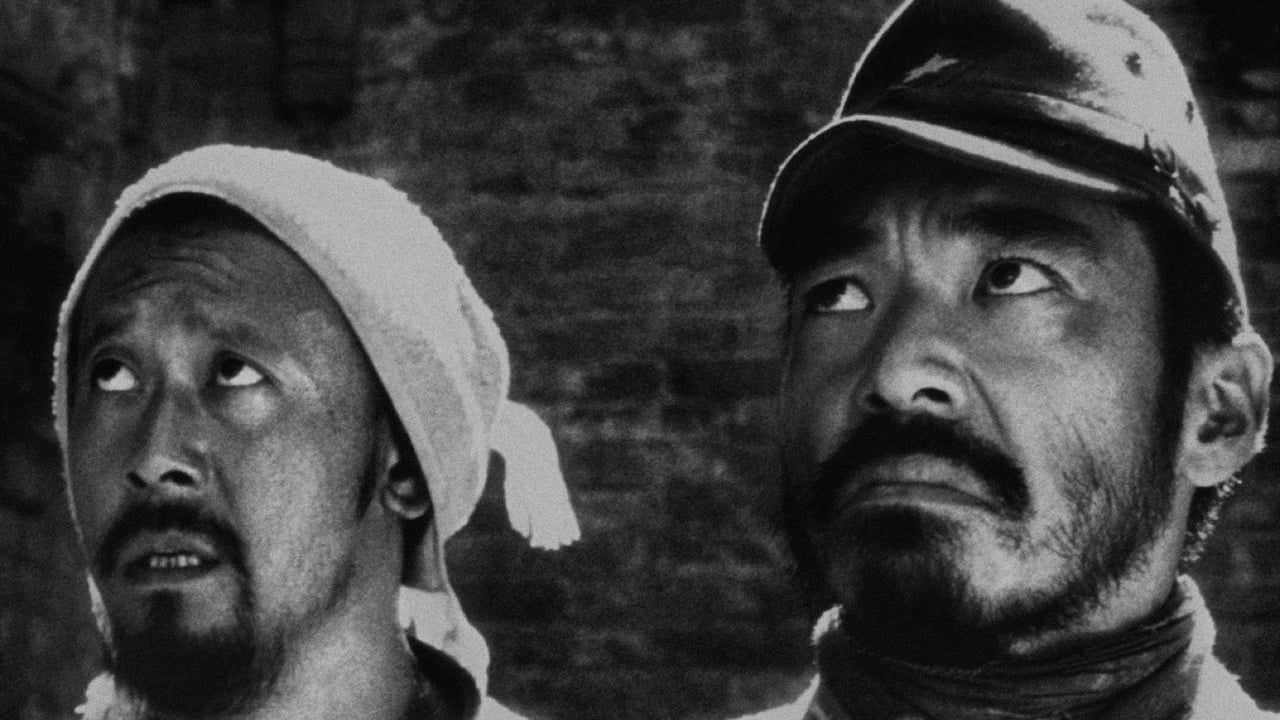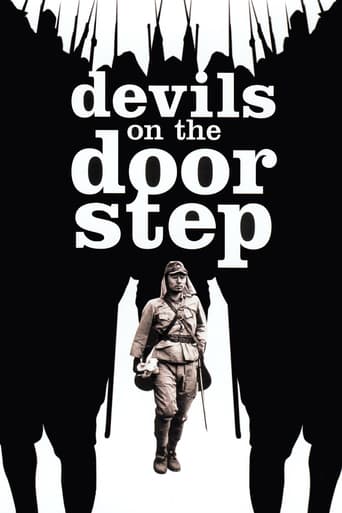ThiefHott
Too much of everything
ChampDavSlim
The acting is good, and the firecracker script has some excellent ideas.
Ogosmith
Each character in this movie — down to the smallest one — is an individual rather than a type, prone to spontaneous changes of mood and sometimes amusing outbursts of pettiness or ill humor.
Tayyab Torres
Strong acting helps the film overcome an uncertain premise and create characters that hold our attention absolutely.
blowaway
This is the second time I see this film. As a Chinese, I feel a strong urge as well as an obligation to write some comment about it. I can safely conclude that the film vividly showed what the real situation was during the Japanese occupation in China back in WW2.It is totally different from those main-stream anti-Japanese war films we can see throughout our early life, which still can be seen being replayed in CCTV (China Central Television) over and again again. In those films, almost all Chinese, young or old, men or women, were all warriors fighting against the Japanese invaders. We all know that it wasn't true. From this film, we can see how ignorant and stupid those Chinese peasants were. It gives us a chance to review what was really going on during that time. It is a history we cannot deny. As a matter of fact, this film was banned in mainland China by some kind of a "censorship" mainly because it revealed so much truth.The director of the film, Jiangwen, is my only favorite director from China. You can say he is ambitious, a genius or whatever. But i say that he is a director with a sense of responsibility to our nation, to our people, to those heroes and civilians died in the war. He is not afraid to dig up the less-bright side of the history and present it to us, to those younger generation who never go through the war. It reminds us never to forget history.
yanjcw
up to now, this is my second favourest Chinese movie and only next to To Livegenerally, i don't call it a Chinse fighting-against-japan movie, which is always about a hero. it's about ordinary civilians struggle for survival under Japanese invasion.first of all, it's an idea to make this movie simply about a village and two war prisoners. when they came across a dilemma of take care of the prisoners, the village folks have to be very careful from being killed by either mysterious "me" or the japan invaders. but no matter how they tried, even to please the Japanese by singing, then got inevitably slaughtered.then instead of mandarin, we see local dialect is used in this movie. some words from the dialect really makes the movie interesting and the character alive. when i see this movie, i just feel they are not characters in a movie, but were ignorant/plain peasants living in northeast China. another wonderful element of language is the translation between japan and Chinese. it's really laughing when Hanaya tried to revile and annoy Ma Dashan & Yu'erfinally, it's a great success to shoot this film in black and white, by which the audience can be put in a real situation where the story happens. it's in color until the end when the Japanese surrender, perhaps it is to imply bright life is coming...one must-see for every average Chinese who won't want to forget the history of being invaded, especially when we see what the Japanese government does in the year of 60th Annivesary WWII
andrewschrock
Do I feel late to the party on this one - how could I overlook this for the last 4 years? I was floored.Watching "Devils on the Doorstep" reminded me of the first time I watched "seven samurai". Barring obvious comparisons such as being shot in black & white, using a combination of drama and comedy, and finishing it off with a startling ending, the movie's sense of time was fluid thanks to an excellent screenplay. Although the movie is lengthy, like many gems of Asian cinema, it was anything but a chore to watch it.The plot is deceivingly simple, come alive thanks to Jiang's poetic directorial style. His characterization is succinct, but evocative, built up from his own personal memories. His vision of war has many ties to US cinema, with delirious, often hauntingly surreal, images of people trying to reconcile their own individual nature with that of being part of a collective.I can see why Chinese censors would take offense to the film. China is painted as the victim that it is so often stereotyped as. However, with the country's continued objections against the Japanese glossing over wartime indiscretions, it could be seen as having nationalist overtones. I don't see the film as necessarily sympathetic to the Japanese: at the end of the movie, they are still the "devils". Additionally, when the plot is extrapolated outside of the film itself, the irony is of course that Japan was defeated by a powerful external force due to their brash political maneuvering.
law82
After enjoying the excellent In the Heat of the Day, I really looked forward to watching this movie and had high expectation on it, and I certainly wasn't disappointed. This movie is a tragi-comedy about the Japanese invasion of China, which of course is no laughing matter, but this movie is genuinely funny and never falls into the bad taste category because it shows you the brutality of war and how it affects the Chinese people (albeit from a different angle than one would expect). The ending, which I am not going to give away, is excellent and I think it is the most courageous war movie ending I have ever seen. However, one thing about Jiang Wen's movies is that they are so technically interesting that it is difficult to see what his movie is about as a whole.
Anyway, I highly recommend this film.

